Oshun spreads sweetness, love and light. Through their musical practice they keep their African Diaspora traditions alive and floating through the ether. The musical duo, Niambi and Thandie, originally from the DMV met their freshman year at NYU and bonded over their commitment to movements of social justice. The name Oshun, which comes from the Yoruba goddess was a name that found them. Oshun’s emphasis to center and celebrate blackness and femininity combined with their Yoruba spirituality has an essential impact on the musical endeavors they decided to partake in. Their sharp cutting lyrics on Not My President reminds their communities that we are here together despite who sits in that oval office, and their willingness to be vulnerable with themselves and listeners on their song Parts is the base of their movement of peace and light. Channeling courage within themselves, along with the support of their ancestors, Oshun has found their medium to express their beliefs and thoughts beyond the confinements of a piece of paper.
AMFM: Tell me about how Oshun inspired the name of the group and how Yoruba practice and spirituality inspires what you all do?
THANDIE: We were starting to create together and sing together in the basement of our dorm. We’d go to the music room or if there was like a dance studio that had these ill acoustics we would just be singing really loud – singing on the street. Also, at that time we both were just growing into our own spirituality and Niambi was sharing a lot of things that she had learned from home growing up in a space that practices Afro spirituality with me and all of our other friends. I was also studying those things in school and also was familiar with those things from my upbringing, not totally immersed in it, but familiar. So we were talking about different orishas and “oh you know I watched this movie about the orisha in class today” “and yea well Oshun is this and Shango does this” and we were really just vibing on Oshun energy at the time and we were saying “ok we know were African, and we know we wanna be super pro black in this thing that were doing together so what do we call ourselves?” We were like let’s just put our names together and translate them in some African dialect, but our names are already African. We played around and basically Niambi went “Oshun” and I was like alright bet let’s do it.
NIAMBIA: And I think with that, to kinda speak to that moment and us really being immersed in the divine feminine energy that is Oshun, it was really us trying to figure out our place and how to put our power in what we were just doing in life and how we want to impact the world. How we wanted to restore balance and sweetness to the environments around us and so that is the essence of Oshun, and you know she is that sweetness that you cannot live without you. That vitality that you need and without her the world would not function. There would be no life, quite literally. Seeing just how history repeats itself, seeing how the demands of our community, and us wanting to do something to make a change, but not understanding how to do it and by us being Oshun we are a testament to that fact. What it is you have to do is that you have to include the divine feminine because that is the power, that is the strength, that is the guidance and that is the mother of everything else. When women are not a part of movements then they cannot succeed when they are not making decisions ort here to speak and give insight and testimony to what we know beyond these lives because we’ve lived many lives. We know many things just by the inherent nature of being in this vessel that is a woman. We wanted to return that power to feminine energy and not just in the bodies of women, but in general. The divine feminine is required for balance in everybody and every living thing has to have that vitality and that water.
THANDIE: I think too that in the process of us calling ourselves Oshun, now that we’re almost five years past that moment, really was a defining moment because it demanded us to be Oshun it demanded us to be sweet and know our power. It puts us in a different place in the whole music game. A lot of artists, they have a name and they represent that name and that brand, but in our case our name is an Orisha. It is literally a spiritual entity. Which requires a level of responsibility, knowledge, and wisdom. It also requires a level of responsibility not just for ourselves, but for the world. People are looking to us to learn about this grand ancient thing, so we really have to know what we’re talking about and in that process of learning for the sake of being able to share with people, it only expands us as creatives and expands Oshun as a movement. It’s very clear that we are the faces and creators, but Oshun the deity is fully at work through us. Every time that we create and perform and write Oshun is speaking through us and speaking to the world. It’s like in the moment you just think you trolling with your friends, but when you listen to what you’re saying it’s like I fully got that from somebody. I fully got that from somewhere.
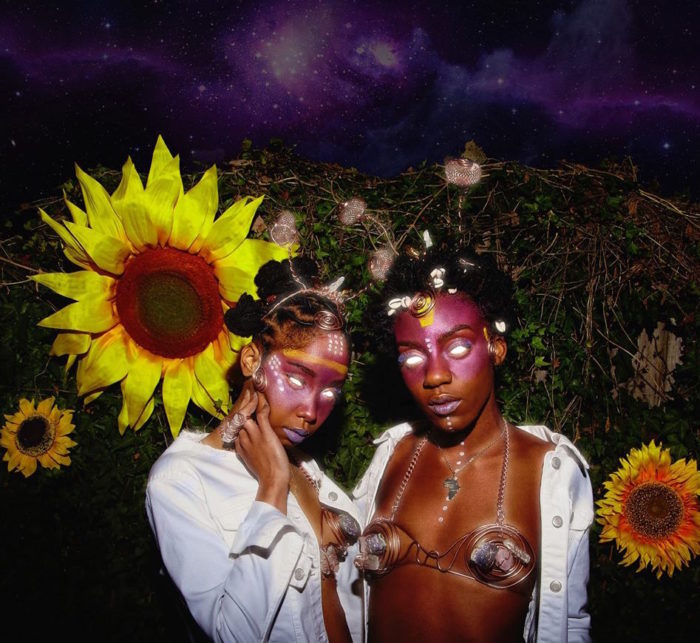
AMFM: I know a lot of times people look back and are like “I wish I didn’t pick that name for our group”. Do you see Oshun as something that was just the right decision?
NIAMBI: Yes, it is a commitment. That’s a major part of traditional African spiritual systems in itself. When you become a priest of whatever you are married with that energy. You have a responsibility to represent it. You have a responsibility you hold space for it. You have a responsibility to protect it in knowing that they are doing the same for you. On our journey to being deacons of love and light, but also of traditional spiritual systems because they have been strategically attacked in our communities for obvious reasons. In our process of healing that is a necessary part of our personal practices. We want sweetness in our lives all the time. We want the power to heal. And it’s not just Oshun that’s it. Our ancestors are fully at work. We all have a multitude of guides and protectors of family that are literally from the heavens that we go to again and again. Just because we are Oshun doesn’t mean we can’t celebrate.
THANDIE: I think too the reason that we feel so good about the name is because it was bold from the moment that we said it. People who didn’t know who Oshun was were like “why they naming themselves Oshun”. People who do know who Oshun is were like “why they naming themselves Oshun”. I think as an artist when you do bold shit that shit’s gone be great. When are you worried about what other people will think or how well you’ll be able to hold something up that doubt is what prevents you from being the greatness that you can be, but from jump we were like were Oshun. We didn’t have to be afraid to say we declare war on our enemy. We burned an American flag on our first music video.
NIAMBI: It was a bandana.
THANDIE: Those are the things people are like what are you doing? We were fearless. We represent and we celebrate Oshun because we know in exchange she got our backs. And that’s why our life is so lit because we make sacrifices. Being bold is great, but at the end of the day sometimes you do wonder, damn what do they think?
NIAMBI: You have to be committed to it. There are so many times where people would be like “What you know about Oshun?” “Who is your temple?”. At first you feel this pressure to justify. Whenever you’re questioned you feel like you need to justify, but after a while if you’re bold enough to decide for yourself who you are then just continue to be strong and walk in it. The universe wants us to succeed. When we first started we knew things about Oshun, but since they have grown into people who bare that name. We learn what was stripped from our ancestors every day.
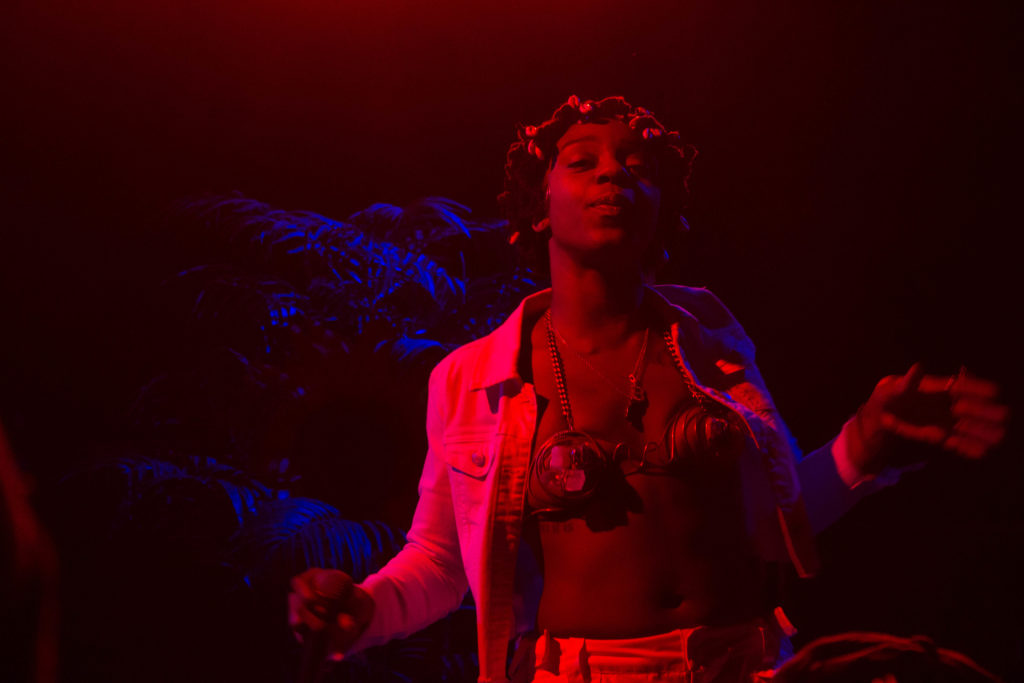
Niamdi at Schubas (Chicago)
AMFM: How did you know this was what you wanted to do? Was music always a goal?
NIAMBI: For me performance was always my life. My name literally means melody. I always knew that’s where I wanted to be. That’s where I felt the most nurtured and when I was really able to feel my power and Overcome anxiety or nerves. I feel so powerful when I’m able to get over fear of doubt or fear of being judged. Just being able to speak my truth. Also, I just cannot sit still. I don’t want to be at a desk. I don’t want someone telling me what to do. There were people who were like “ok that’s a good idea, but you know you not gone make it” and I was like ok. I’m gonna tell you what I’m going to do. Since you need me to go to school so bad I’m going to school, for music. I’m going to graduate and figure out my life while I’m there. From childhood until we met it was writing, performing, singing, and still trying to find what my true expression was. Then when he came together it was like oh ok.
THANDIE: For me it was a little different. I was also equally as passionate about music, dancing, singing and also I knew I ain’t want to do no basic shit with my life. I wanted to do something different and I also don’t like people telling me what to do. I had that same energy, but I wasn’t actively trying to pursue being a performer. In my head when people would hate I’d be like, “yall gone see”, but I never had the plan for how they was gone see. I just knew they was gone see. I knew I was going to go to college in NYC and figure it out. In preparation for that, in high school I started deejaying and making beats. It was still a hobby though, but they were gone know. Then met up with Niambi and it was history from there. And we wanted to use our art to speak truth, and not politically correct truth. Our truth.
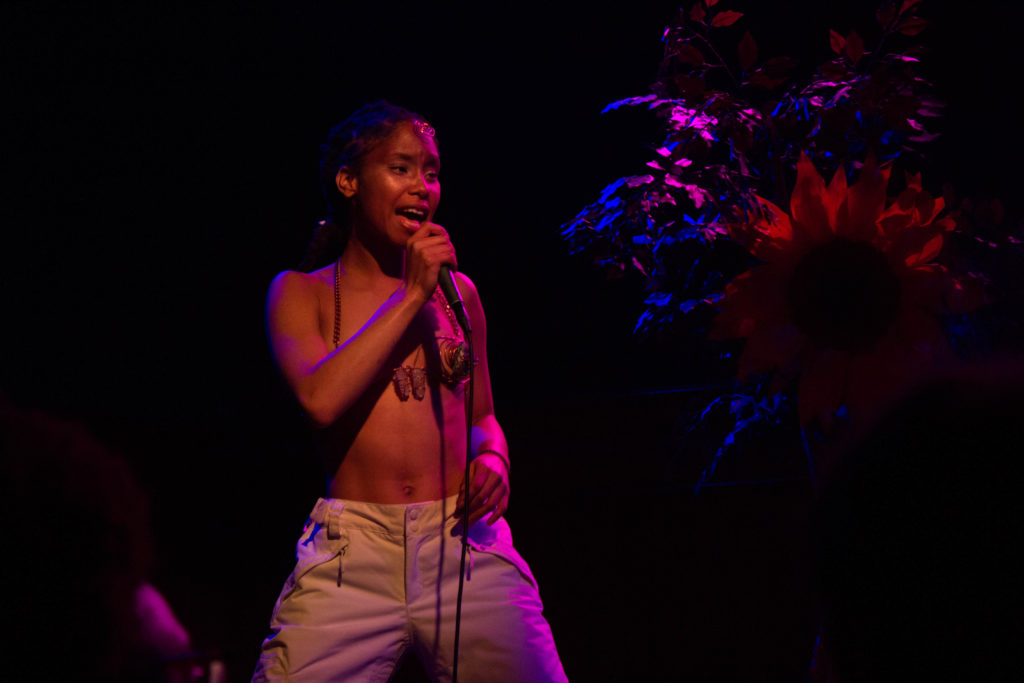
Thandie at Schubas (Chicago)
AMFM: One thing I rarely like about you all is that you’ve defined your own sound, “Eya Sol”. I want to commend you for pushing the boundaries of what music should be, but can you tell me about why that name and how did you come to define this music you make?
THANDIE: Eya Sol came about during our last project. Its because our creative process has always been very organic. Were just like let’s make some dope shit and every time we do it comes out different. With that we realized we can’t call this just soul or just hip hop. It gets jazzy over here and very Paramore over there. Really, we just couldn’t be boxed so we said what is that underlying factor and Eya is a Yoruba term meaning mother, priests, teacher, healer and were like were that. And it is soul, but soul is spelled as “sol” as the sun and as the source. It energy directly from the source that is teaching with motherly intentions. The genre is speaking more to the purpose of the music, not necessarily to how it sounds.
AMFM: Who or what has influenced your sound?
NIAMBI: Parliament Funk is a big influence. Obviously, people like Lauryn Hill, Erykah Badu, Jill Scott, Floetry, Fugees.
THANDIE: Also, traditional Yoruba orisha music has influenced us because of the things we sing and are involved with. We have this thing called “Ase” in Yoruba practice which long story short basically means power though words. Being able to say it and once those words are put out in to the universe it will manifest. So, everything that we say, every word that we speak is anointed. It is divine. With that being said, when we are speaking and even praying in the morning those things are huge influences. Our prayers are our lyrics. Our spiritual practice is the foundation for everything that we create. Then we hear the radio and were like damn this new Rae Sremmurd kinda hot. Like she said, the OG’s have influenced us. Even Beyoncé, B’Day came out in 5th grade.
AMFM: I know you all are form the DMV area and I’m curious has that and living in New York influenced the way you make music or the sound of your music.
NIAMBI: A major thing in the D.C. music scene that sort of exists in New York, but even in the spaces that it does are from D.C., is live music. It kind of happens in New York, but every show in D.C. has a band. Everybody is in a band. In high school every single person was in a GoGo band. We don’t perform as much with a band now just because it is a lot to manage, but we still integrate it into our music. In terms of when we first started everything started with instrumentals. It was like of we have a song lets sing it to a guitar or let’s sing with a piano then lay a beat on it. Or we’d program drums and live drums.
THANDIE: We haven’t had our GoGo track yet, but I feel like our music always has that bounce. When you leave D.C. it’s easy to forget, but last time we were in D.C. all we were playing was straight GoGO.
AMFM: How do you all go about writing songs? What does your writing process look like?
THANDIE: It varies. Sometimes were like let’s write a song about this. Sometimes it’ll be freestyles that are really good and were like ok let’s take this in the studio. Sometimes it might be poems that turn into songs. It varies though and because there are two of us, really three because Proda is an integral part of the creation process, we bounce off of each other. Niambi might come up with a hook or a fire verse and then Proda will be like alright say it like this and it’s just heat.
NIAMBI: Proda will just be playing stuff or we’ll play around in the studio or just playing around with flows or just sounds that inspire words. Or sometimes it’s just if I don’t write I’m going to smack somebody. I need to express creatively so that I’m not disruptive, though sometimes disruptive is good and being disruptive through creativity is even better.
AMFM: You’ve talked about this a little bit, but I want to know how you use your music towards activism. I saw you all at the Grammys with Logic and your song “Not My President,” and I’m curious as to why that is so important?
THANDIE: It is important because both of us always knew we wanted to be creators, but we fully both wanted to be Malcolm X. I think for me, my dad is a scholar, so I would grow up with Malcolm, Martin, Marcus, Fela. That was what I knew. My paradigm was just black revolution. What else is there? It really is just a part of who we are and we met in that context. We got into NYU and met at an orientation for scholarship that we both got called the Martin Luther King scholarship. They gave it to applicants who showed excellence in the realms of social justice, community service and this was just based off of our essays. It wasn’t something that they were like hey everybody apply to this program. It is just off of what they peep in your essays. So naturally we were just like I’m tryna save the world, and if you not with it then bye. So we met in a realm of a bunch of young people wanting social justice, equality, peace.
NIAMBI: A lot of times we don’t speak out about things because we fear being prosecuted or we fear being judged. We fear being infiltrated and we may even feel fear of the responsibility of being the ones to call out and wake people up. All that is false. Fear is false. We want to just exude love and light and allow them to unlock that light within them. Obviously there are many forces that be, but to really get down to it we are not the minority. It’s a mental game. The longer our spirits are in contain and in control, and the longer our minds are in control then we are in control. The moment we unlock those things you realize I’m in Brazil, I’m in Ghana, I’m all across the continent and I’m all across your continent too. I’m everywhere.
AMFM: Are there any other projects we can expect from Oshun this year?
THANDIE: A lot of things. Like we said Bittersweet Vol. 1 and tour. Honestly, were still praying on it. It’ll manifest.
NIAMBI: Definitely a lot more community things. We’re tryna work with students and coming into after school programs. Ideally we’ll be able to be in the cities were on tour at and work with people in the communities and lift each other up.
THANDIE: On a personal tip, really focus on our spirituality. Spirituality is practice and you have to practice every day, but when you’re recording, writing, doing administrative work it can be hard to mediate and commune with those spiritual guides.
NIAMBI: We are self-managed artist, and that shit is a lot. We spend a lot of time in our office going through paperwork. It’s something that is very necessary and not doing it is how you lose your shit. I’ve seen way too many episodes of Unsung to have that shit happen to us.
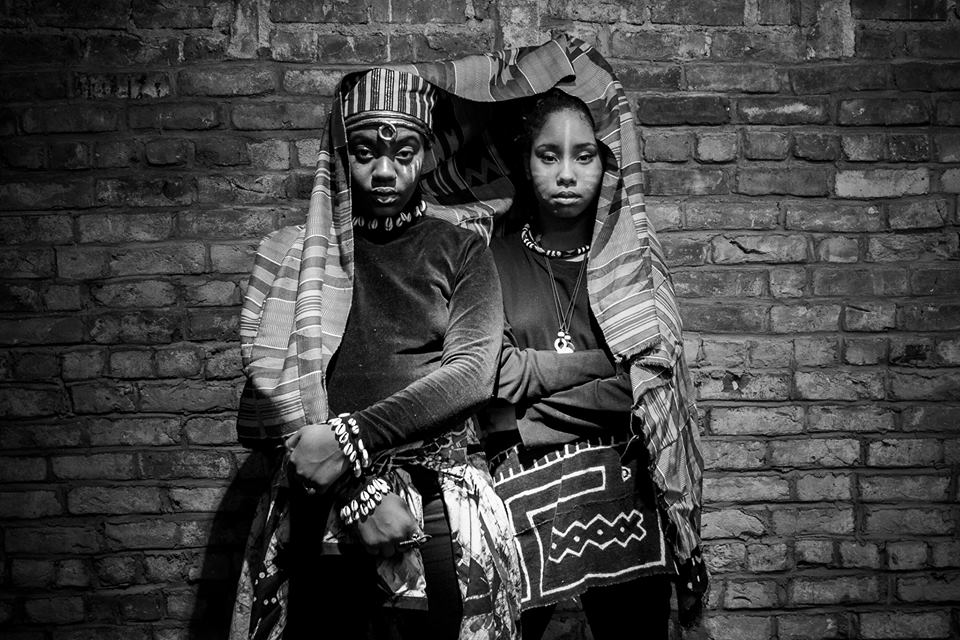
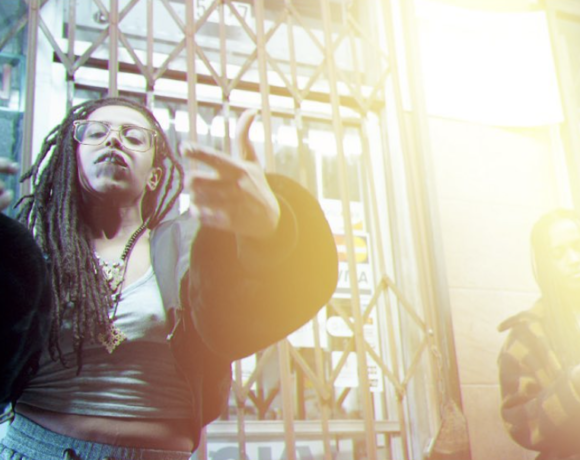
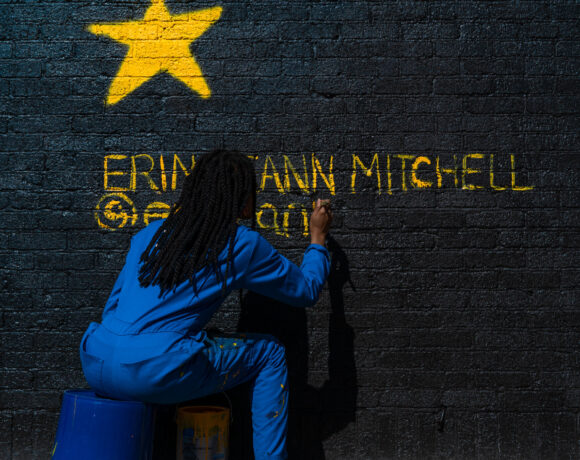
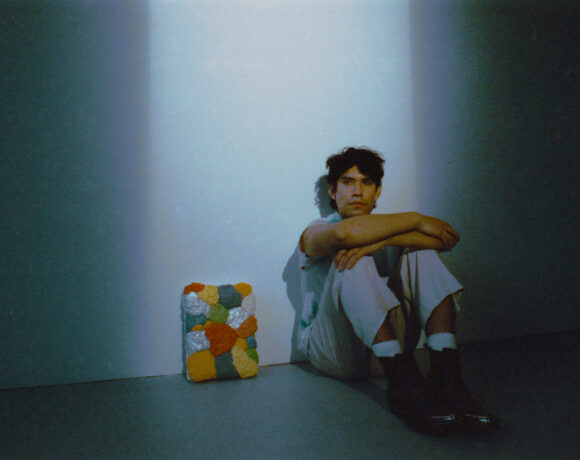
COMMENTS ARE OFF THIS POST